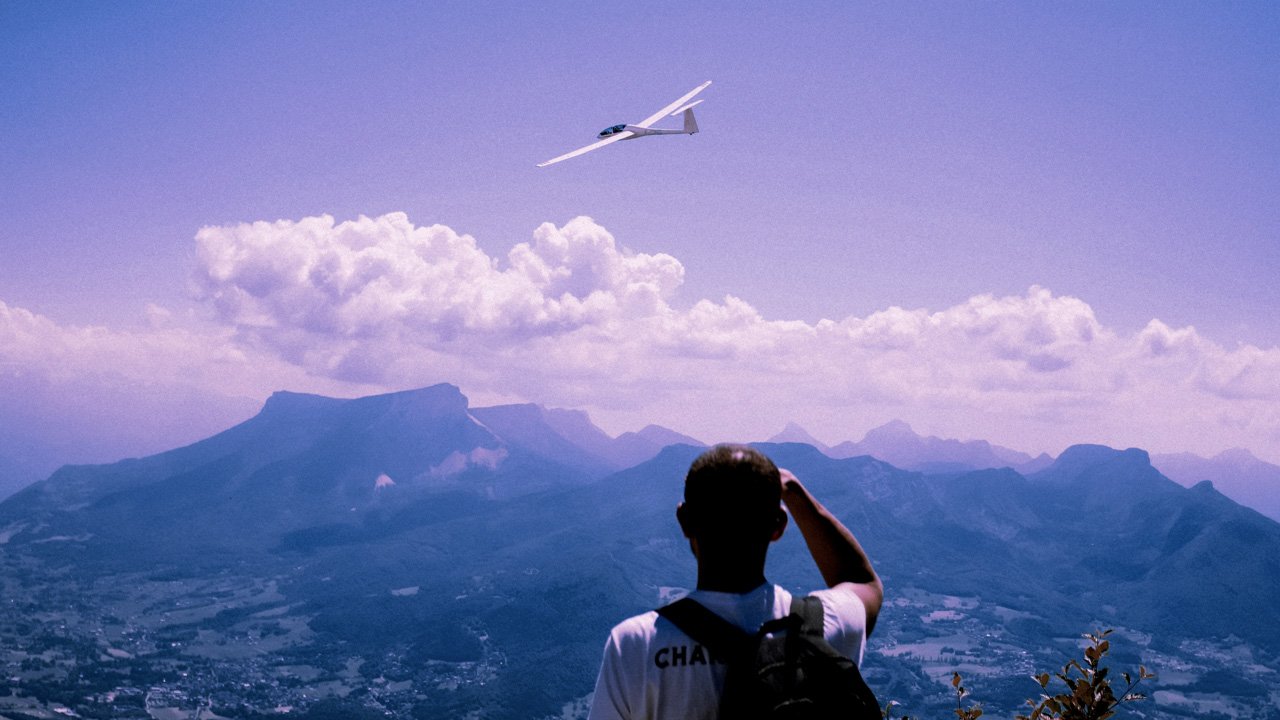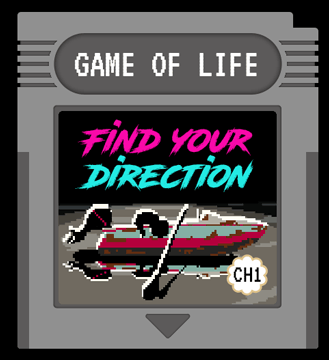There are actually some legitimate reasons for not having a kid. Becoming a parent has serious implications for you, your relationship and the planet.
From the moment of a positive pregnancy test, you must bear the responsibility of a (yet) incapable human. This will require you and your partner to give up several aspects of your life, until your children have turned into grown-ups.
If you are a considering having a kid of your own, or if you’d like to be able to counter that aunt who keeps asking when you’re going to be a parent, here are five arguments not to have kids:

Loss of Freedom
Freedom of Movement
Kids take away your adventurous side.
It puts an end to your careless adolescence years. You cannot have those crazy, wild nights anymore. There is no longer room for irresponsibility.
Even for the most adept parents, children are burdensome. Your responsibility as a parent creates burdens to go out spontaneously, travel freely and make life-altering plans.
You cannot decide to buy a house on the other side of the country, without taking into consideration that your kid will have to move schools, make new friends and get used to new babysitters.
Road trips on a bike through Thailand? Nah, you’ll find yourself in a small cottage with child-friendly facilities, or maybe a trip to Disneyland. Not necessarily bad, but a whole lot different.
Financial freedom
Kids are also a financial burden. A survey by Redbook found that although 76% of expectant parents felt financially prepared to have a kid, 41% later realized that kids are way more pricey than they thought. They spent more money than they anticipated on hospital bills, car seats, strollers, clothing, day care, diapers and wet wipes.
The projected money spent on raising children in the US, according to USDA, is as follows:
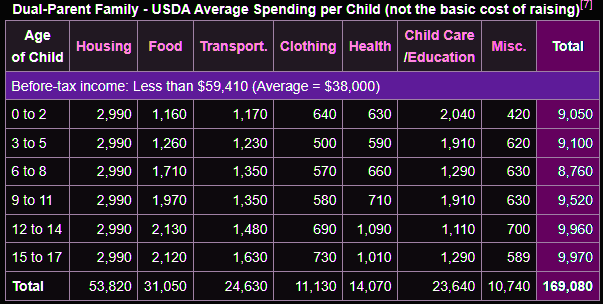
This was for lowest income group with two parents, where spending per child consisted about 26% of their annual income. This percentage drops for higher income families. For parents with an average income of $79,940, the burden of a single kid drops to 17%; where as parents with an average income of $180,040 only spend 13% of their income on their kid.
There are some problems with the way USDA calculates spending per kid, but the numbers should give you a warning sign:
Raising a kid costs money.
Mental Freedom
Say goodbye to “me-time”.
Even if you decide to leave the house for 5 minutes, you need to make sure there are another set of eyes at home, or you need to take the kid with you. So that means bringing a stroller to the grocery store, a car seat in your car, a child seat at your dinner tables, while carrying an emergency diaper bag everywhere.
This is also taxing for your mental freedom. You always have to think about your kid.
How did he sleep? When should he eat? Is his diaper full of shit?
Next to your own daily schedule, you will need to constantly think of a second schedule for the most mundane things. Yes mundane, your kid cannot even wipe his own butt.
While horses are practically galloping out of the womb and monkeys come out swinging on their umbilical cord, human babies are so helpless, you could say they are born 12 months too early.

Impact on Friendships
Having kids is not just a burden to you and your partner. Kids also create a burden on family and friends when it comes to babysitting.
Find someone crazy enough to voluntarily babysit a inanimate poo factory, or you’ll need to bring your kids whenever you meet up with (childless) friends.
Your decision to have kids will impact all of your direct relationships.
A study in Child magazine reported that half of the parents said they had fewer friends after their child was born. Before they had kids, men reported spending an average of 16 hours a week with friends. After kids, time spent with friends dropped to 6 hours.
Regained Freedom after the Newborn Stage
I think the newborn stage is the most challenging and restrictive. Once the newborn stage is over, and if your kid has developed a regular schedule and bed time, you will have more free time. And after a year or 4 or 5, you will be able to send your kid to football practice or let him with play with other kids in the neighborhood independently.
So slowly you will regain some of your precious freedom. That is if you don’t decide to have a second child. FFS, now the cycle will repeat itself.
Unhappiness
Most people think of their children as making their lives better. Yet for many people, the increased stress and unconditional responsibility that comes with parenthood, can dramatically impact their lives.
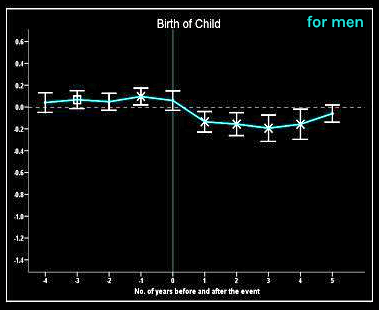

The strongest effect on life satisfaction is at the time of birth, where life satisfaction significantly drops for both men and women. The study shows that the first years of parenthood are tough and that overall life satisfaction needs some time to grow back to pre-birth levels.
Furthermore, a 2016 study on parenthood in 22 countries showed that parents in the US are significantly less happy than nonparents. Although, this gap in happiness varies per country, with parents in Portugal, Hungary, Spain and Norway being significantly happier than people without children. Generous family policies, such as paid time off and childcare subsidies, may be a reason why the happiness gap between parents and nonparents is lower in those countries.
Another study showed that happiness only increased when parents genuinely wanted kids beforehand, rather than those parents who got talked into it or who experience accidental pregnancies.
Environmental impact
One factor of having kids is often overlooked: the impact of bringing an extra kid to this planet.
More and more people are turning to veganism, buying electric cars or isolating their homes, which are all sensible considerations to reduce your own footprint. However, if you are truly concerned with climate change, you should also consider the impact of one more human.

You can replace beef with quinoa, never buy a car or skip transatlantic flights. But their effects on the environment are dwarfed by the decision not to have children.
The role that overpopulation plays in climate change and the depletion of Earth’s resources might be enough reason for you to never have kids.
Career Pursuit
It is well-known that pregnancy and child birth affect the career path of women. Mothers work less, are paid less and do not pursue the same jobs after devoting a part of their life to motherhood.
But also fathers have to seriously consider the effects of having children on their work-life balance. This has become especially evident when men had to work from home during the pandemic. Think of Zoom calls with kids jumping in the background, and dads longing for a day at the office.
Your ambitions are likely to change, or at least be set on hold for a couple years.
It is a constant battle between being able to give your baby all the love and attention it deserves and fulfilling your work aspirations. And if your wife decides to work less or devote all her time to motherhood, you must carry the weight of providing for the family. You will think twice about promotions, switching jobs or starting your own business.
I think that your career and financial position should play a significant part in your decision to have kids. Or at least in your decision on when to have kids.
You will likely earn more at a later age. Parents who decide to have kids at a later stage (35 to 45) are better able to reap the benefits of years of hard work. Proportionally, you will spend less of your income on your child, leaving more room for other expenses.
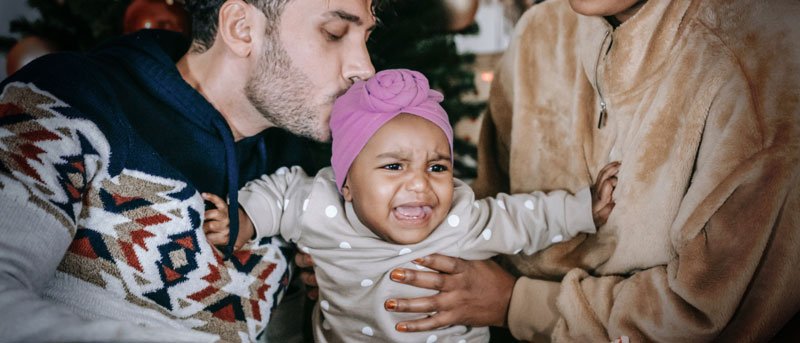
Life-long commitment to a partner
A kid will tie you to your partner for life. Even if you decide to divorce, you still have a human of flesh and blood tying you two together.
It is estimated that nearly 45% of all marriages end in divorce at some point, so it is a serious scenario to consider. You have a shared responsibility, which works best if you are on good terms with your (former) partner.
Kids won’t save your relationship
A baby is not the solution to a bumpy relationship. Don’t get a girl pregnant to tie her down. Having a baby together will likely put even more stress on your relationship.
A child deserves a solid foundation of two loving parents; loving towards the baby and each other. Even babies who can barely utter anything but a loud tantrum or giggle, know when something is up between mom and dad.
If your relationship ends and you want to search for a new partner, you will find that the dating scene is different for parents. Many men see “mother 👧🏽” in someone’s Tinder bio and they instinctively swipe left. That sounds harsh, but you can think of reasons why.
“Many couples think that having kids will bring them closer, enhance their relationship and make it stronger, because they now get to bond over a little person that they created. But the facts don’t exactly back this line of thinking up. As Dr. Ellen Walker explained in Psychology Today, “Marital satisfaction rates actually plummet after the birth of the first child.””
~ Psychology Today
It’s inseminate o’clock!
You should not be getting a child, simply because everyone around you is getting one. Nor because of your family pressuring you with questions like: “How come you don’t have offspring yet?”
Depending whether you are male or female, your biological clock is ticking at a moderate or insane speed. But the decision to have children can also be made after your 35th birthday, either through natural birth, freezing eggs or adoption. Giving a brighter future to a kid from poor conditions, is in that sense even a more environmental-friendly option.
Although, foreign adoption procedures are changing. For instance, the Dutch government has suspended all foreign adoptions after investigations into abuse and coercion. It is likely that other countries will adopt similar policies.
In short, parenthood will impact...
Your relationship. Your sex life. Your personal space.
Your physical appearance. Your sleep. Your chores.
Your financial situation. Your career opportunities. Your freedom.
Your friendships. Your travelling. Your outgoing life.
The furniture you buy. The amount of wet wipes you purchase. The cars you consider.
The planet’s resources. Your emissions. Your footprint.

But it may all be worth it in the end.
Other Articles
The Basics of Passive Income
by FreshSaga
Passive Income is disconnecting your time and the money you earn. It is the only way to true financial freedom. You can find examples of passive income in real estate, investing, online teaching, and more…

